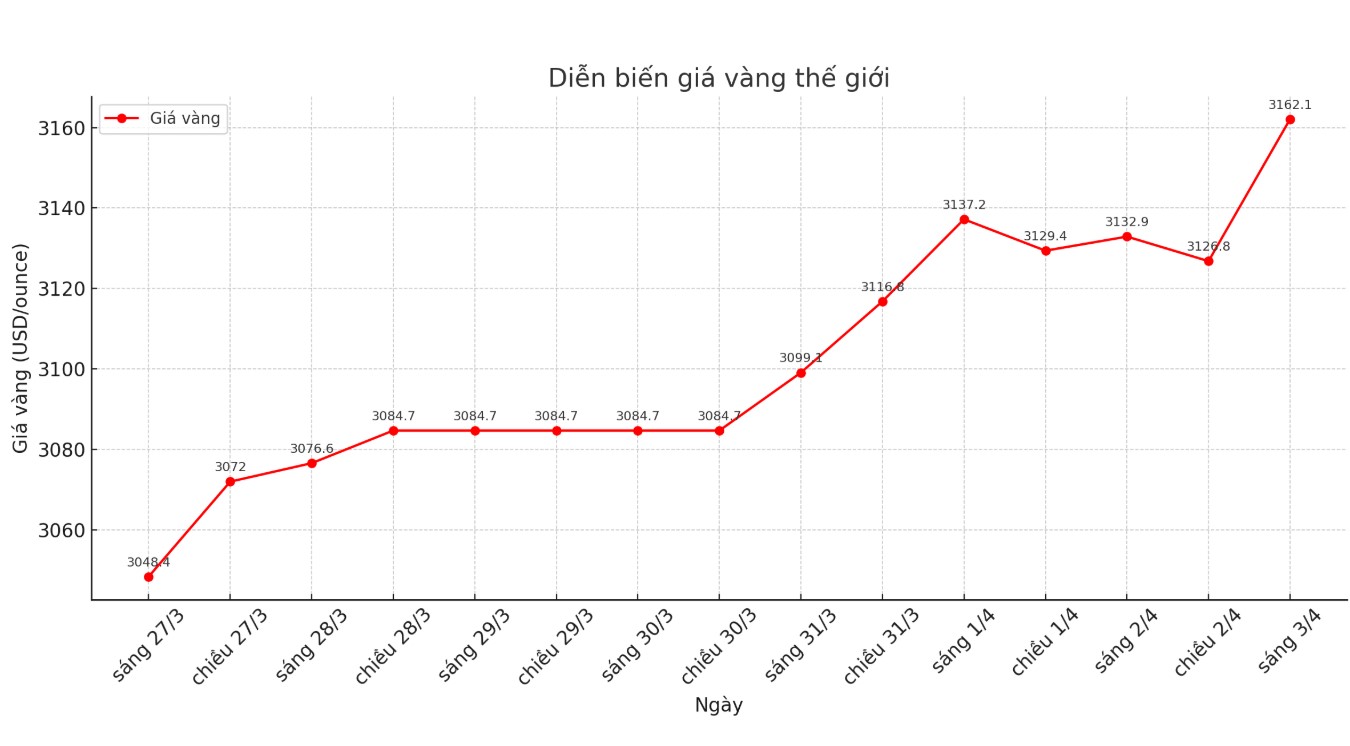According to Reuters, in the early morning of January 3 (Vietnam time), President Donald Trump signed a decree imposing a 10% import tax on all goods entering the US, and raising the tax rate for more than 60 countries, including major trading partners such as China, the European Union (EU), Japan and India.
China is the country most affected, having to bear a total of 54% of the tariffs, including the new 34% tariffs that Mr. Trump has just announced, combined with the previous 20% tariffs.
Not only China, but other important trading partners have not escaped Mr. Trump's tariff storm.
The European Union is hit with a 20% tariff, a major blow to key export industries such as cars, food and wine. Japan is subject to a tax rate of 24%, South Korea 25%, India 26%, while Vietnam faces a high tax rate of up to 46%.
Over the past two days, world gold prices have been in a tug-of-war state and awaiting moves from the US. Immediately after the US global countervailing tax decree was issued, world gold prices increased sharply.
The world gold price at 6:10 p.m. on February 2 (Vietnam time) was listed at 3,129.4 USD/ounce. By 4:00 a.m. on April 3, the precious metal had risen to $3,133.7/ounce. At the time of writing (7:00 a.m. on April 3), the price had increased to $3,162.1/ounce and there was no sign of stopping.

Not only did the gold market record strong fluctuations, right after President Trump's announcement, the US stock market fell sharply.
Investors are concerned that trade tensions will disrupt the global supply chain, push up production costs and consumer prices, directly affecting the wallets of the American people.
Major companies such as Apple, Tesla, Nike, which depend on the international supply chain, are facing the risk of having to adjust production strategies or increase product prices to offset costs.
On Kitco, Chris Zaccarelli - Investment Director of Northlight Asset Management - said that the US President's announcement had extinguished the market's initial optimism about the level and scale of import taxes.
The market is like a super-fast bullet train. Initially, there were leaks that the tax was only at a basic 10%, but when the details were announced, it was much worse than expected, from 24-49% for goods outside the EU and the UK. The market will continue to struggle because tax information is changing so quickly, and no one knows exactly what the outcome will be, he told Kitco News.
Hopefully for investors, this could be just the starting point for negotiations with other countries, and eventually import tariffs will decrease across the board. However, investors are taking urgent action and have not yet fully assessed the situation, Zaccarelli added.











